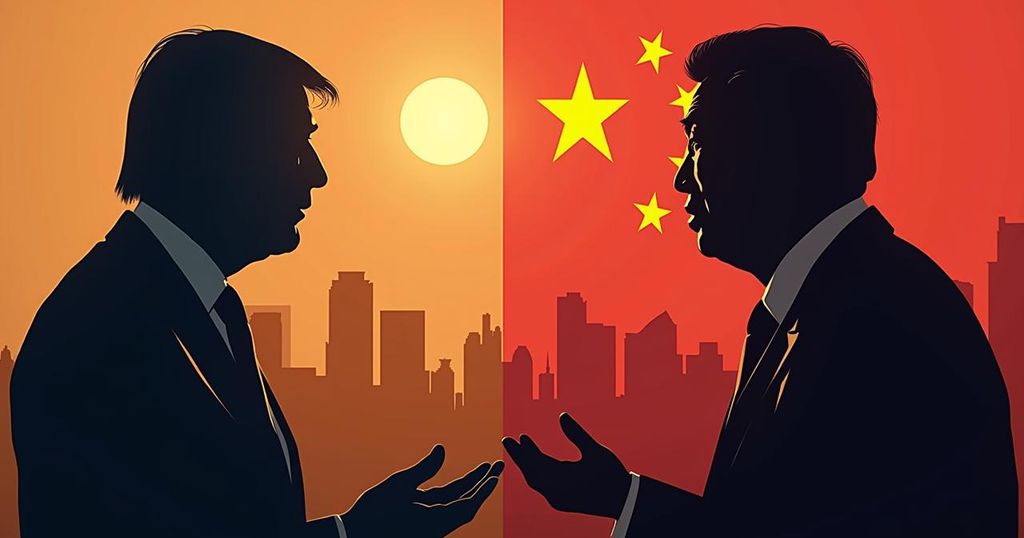The U.S. Ambassador to China, Nicholas Burns, announced that the Biden administration aims to prevent a “second China shock” through tariffs and collaboration with European allies. He warned of potential sanctions on China if it continues supplying dual-use goods to Russia, emphasizing the need to diversify critical material sources.
Nicholas Burns, the United States Ambassador to China, recently articulated the Biden administration’s firm stance against what he described as a potential “second China shock”. During a virtual address from Beijing, he emphasized the importance of global cooperation in addressing China’s oversupply issues, particularly in the electric vehicle (EV) industry. Burns called upon European allies to collaborate in this effort and reiterated the necessity of heightened vigilance concerning exports to Russia, particularly concerning dual-use goods that could bolster Russia’s military operations in Ukraine. He alluded to the lessons learned from the pandemic, highlighting the dangers of over-reliance on a singular source for essential materials. The ambassador’s remarks referenced historical context, notably how an influx of Chinese imports in the 2000s resulted in significant job losses within the US manufacturing sector, a trend he is keen to avert moving forward. Burns did not shy away from suggesting that additional sanctions against Chinese companies could be implemented if they continued to facilitate the flow of restricted goods to Moscow. His statements underscore an upcoming wave of protectionist measures aimed at safeguarding American industry while fostering an aligned international response to emerging geopolitical challenges.
In the wake of rising geopolitical tensions, particularly concerning China’s growing economic influence and its support for Russia amidst the Ukraine conflict, the United States has adopted a strategic approach to trade and economic relations. This involves imposing tariffs as a means of mitigating the risks associated with dependency on Chinese imports. The term “China shock” refers to the economic impact felt in the United States following the rapid integration of China into the global market in the early 21st century, leading to significant manufacturing job losses. The current discourse reflects a broader desire to prevent a repeat of such an economic disruption while addressing issues of overcapacity in key industries.
In summary, Ambassador Nicholas Burns’ remarks shed light on the Biden administration’s commitment to preventing a repeat of the economic disruptions caused by the first “China shock”. The focus remains on international collaboration to manage China’s industrial capacity, while also ensuring that American supply chains are not disproportionately dependent on any single country. Furthermore, the potential for increased sanctions serves as a reminder of the United States’ strategic objectives in the face of emerging global challenges.
Original Source: www.scmp.com






